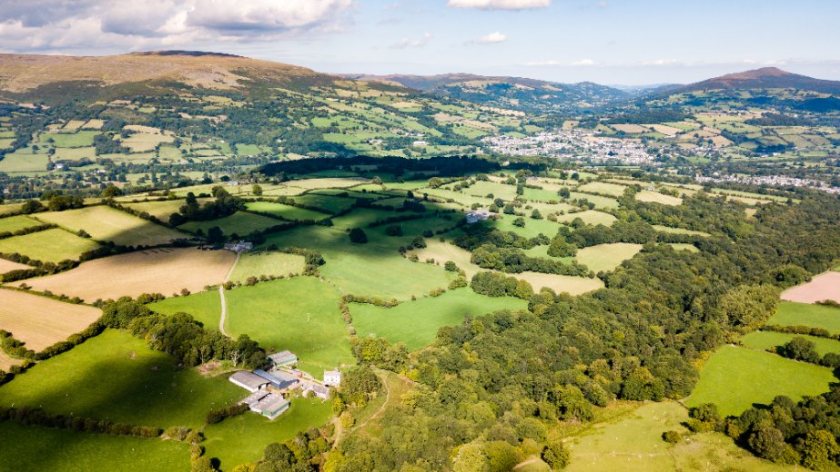Food production set to continue at Covid-memorial site following concern

A significant section of land purchased by the Welsh government for one of three Covid-memorial woodlands will still to be used to produce food, it has been confirmed.
In February, the Welsh government announced that new memorial woodlands would be created at three separate sites, including a section of farmland at Brownhill in Carmarthenshire's Tywi Valley.
The plans involve planting trees, sparking fears among local people that valuable agricultural land for food production would be lost.
Rural campaigners met with Julie James MS, Minister for Climate Change on 16 August at the site of the proposed memorial, while inspecting the rest of the land that Natural Resources Wales (NRW) acquired on the government’s behalf.
It follows months of campaigning, including a petition which called on the government and NRW to "stop purchasing productive farmland to plant trees which threatens our fragile rural communities, heritage, culture and the Welsh language."
The meeting, which was requested by the Countryside Alliance and facilitated by NRW, gave those in attendance the opportunity to discuss concerns and reach agreement over two significant factors within the site’s 200 plus acres.
These were the importance of protecting rare Curlew in the valley and the need to intertwine food production and woodland creation on the better pieces of land.
NRW and the minister agreed with rural campaigners for the need to protect Curlew, particularly in the development of the ‘conservation space’ an area designed to protect biodiversity.
Initial proposals had included an area marked for potential “closed canopy woodland”, which would have seen quality agricultural land disappear for new trees.
The second round of consultation now proposes that section of land as a ‘growing space’. Campaigners had argued that it should be used for producing Welsh beef and lamb.
The Countryside Alliance also raised the importance of introducing ‘Rural Community Impact Assessments’, which would see the government considering the potential impact of tree planting on food security and the local community.
Rachel Evans, the group's director for Wales, also suggested a community open day on the Covid site, which would likely to be taken forward.
Ms Evans said: “It was incredibly important to put our ongoing concerns about tree-planting at this site directly to decision makers.
"We are pro-planting the right tree in the right place, but there are clearly significant parts of Brownhill which bolster our national food production and ability to remain self-sufficient”.
“I was delighted to hear the minister support our suggestion that food such as Welsh lamb and beef will continue to be produced on this section of land.
"This is a positive step and will ensure that the more valuable agricultural sections of the site remain used for food production."
She said going forward, dialogue between the government and local communities must be a priority for future tree-planting proposals.
Local people must be part of the process and not feel as though decisions were being imposed on them, Ms Evans added.
Julie James, Minister for Climate Change said: “I welcomed the opportunity to visit the site with Countryside Alliance and NRW, which will become one of our first commemorative woodlands to remember family and friends lost to Covid-19.
"Following feedback from local communities NRW have devised a plan which combines tree planting with food production and can be an exemplar of what we would like to see on farms across Wales if we are to address the climate change emergency."
Natural Resources Wales is expected to publish the outcomes from the second consultation on the site in early September.








